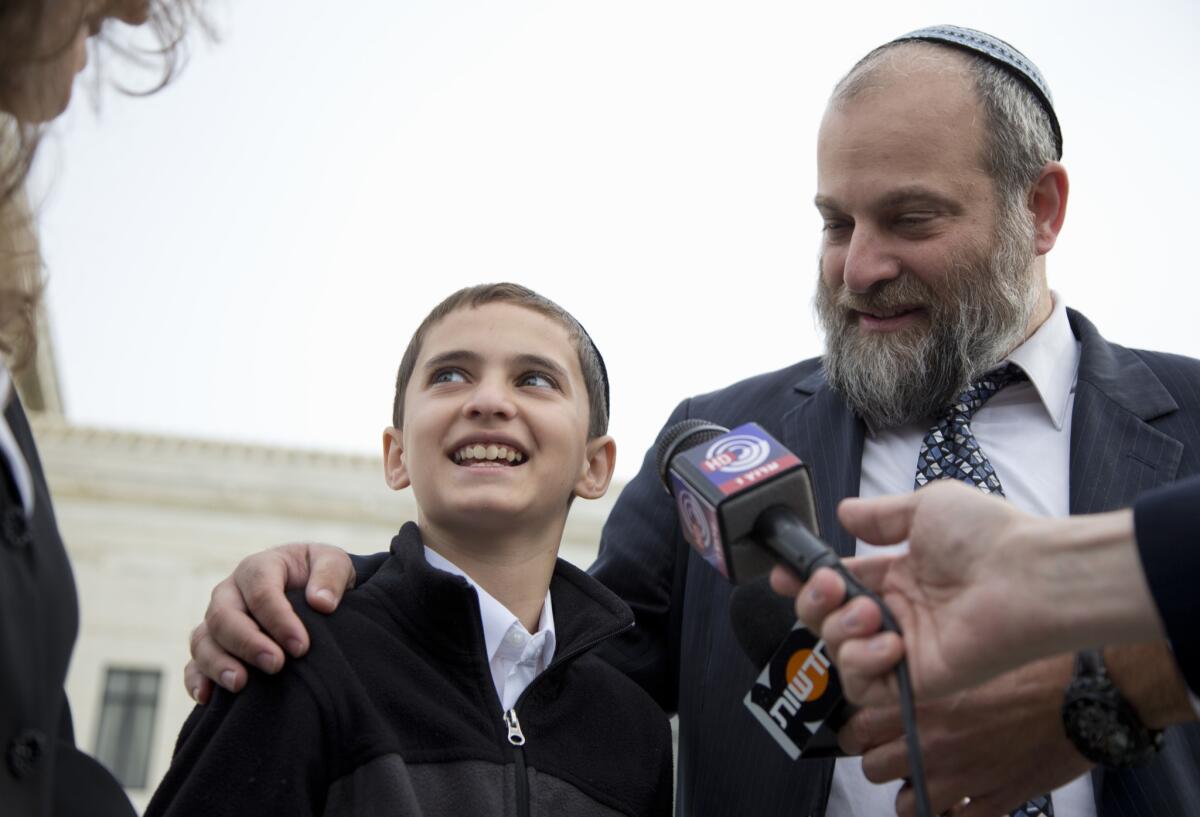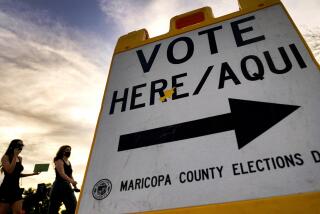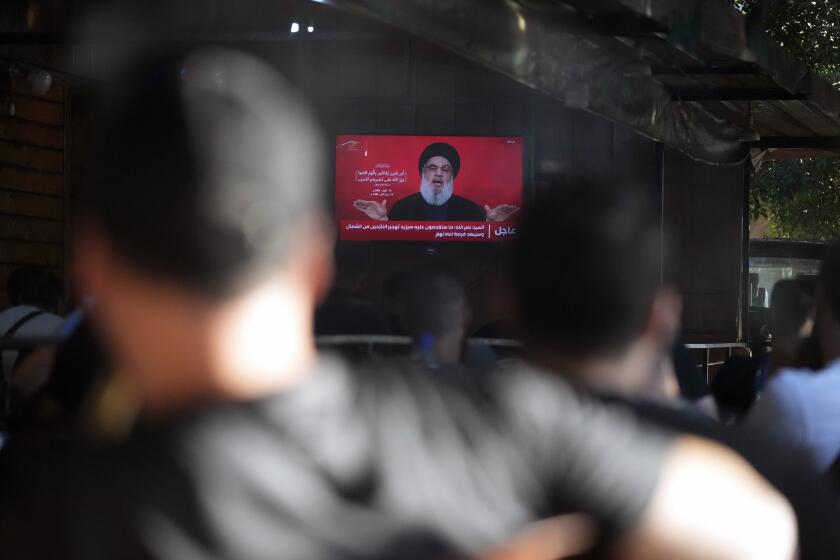Supreme Court appears sharply split on Jerusalem passport issue

The Supreme Court justices sounded sharply and closely split Monday over whether the president or Congress has the power to decide whether passports of American children born in Jerusalem may be stamped with “Israel.”
The outcome could reverberate in the Mideast, where the legal status of Jerusalem has been in dispute since 1948. Both Israelis and Palestinians claim the ancient city as their capital.
The ruling also could undercut the long-standing claim of presidents that they have “exclusive power” to conduct the nation’s foreign affairs.
From the opening minutes, the justices staked out opposing views. The court’s liberal and Jewish justices strongly defended the State Department’s policy — under Presidents Obama and George W. Bush — against listing Israel or any other nation on the passports of American children born in Jerusalem.
Justice Elena Kagan called the move to add Israel to these passports “a very selective ‘vanity plate’ law.” She said it was shocking that Congress would seek to meddle in a sensitive foreign policy “tinderbox.”
She was referring to a 2002 authorization bill passed by Congress that included a provision giving U.S. parents a right to have Israel cited on the passports of children born in Jerusalem.
Although Bush signed the broader law, he issued a statement saying he would not abide by the passport provision because it “impermissibly interferes with the president’s constitutional authority to conduct the nation’s foreign affairs and to supervise the unitary executive branch.”
Obama, like Bush, has argued that the status of Jerusalem should be determined by peace talks, and that the 2002 law “tries to deny the president the power to give effect to our position,” said U.S. Solicitor Gen. Donald Verrilli Jr. “This is a place where the court should afford deference to the judgments of the executive branch and the State Department in particular.”
Justice Stephen G. Breyer agreed. “I’m a judge. I’m not a foreign affairs expert,” he told Alyza Lewin, the lawyer for the Jewish parents who brought the challenge.
But the court’s conservative justices disagreed with Obama’s lawyer. Congress has the power to make the laws, said Justice Antonin Scalia, including declaring war on another country. “We do not hold an act of Congress unconstitutional,” he said, just “to make nice with the Palestinians.”
Chief Justice John G. Roberts Jr. and Justice Samuel A. Alito Jr. said they agreed with Scalia and were not troubled by Congress setting rules for passports.
Once again, the outcome probably depends on Justice Anthony M. Kennedy, who said he was looking for a compromise. The State Department could solve the problem, he said, if it issued a disclaimer. Regardless of what the passports say, the United States could state it does not recognize Israel or any other nation as having sovereign control over Jerusalem, he said.
The case of Menachem Zivotofsky vs. John Kerry began in 2003 when the boy’s parents sued the State Department. They wanted their son’s birthplace listed as Israel, not just Jerusalem. They lost in two lower courts. The high court will rule on their claim early next year.
Their decision could affect more than 50,000 other passports, attorneys said.
Meanwhile, the court took no action on a pending appeal that raises a major challenge to Obama’s healthcare law. At issue is whether the law as written allows the government to subsidize insurance in the 36 states that do not run their own exchanges but use the federal exchange instead.
The court said the appeal would be considered again during Friday’s private conference.
More to Read
Sign up for Essential California
The most important California stories and recommendations in your inbox every morning.
You may occasionally receive promotional content from the Los Angeles Times.











